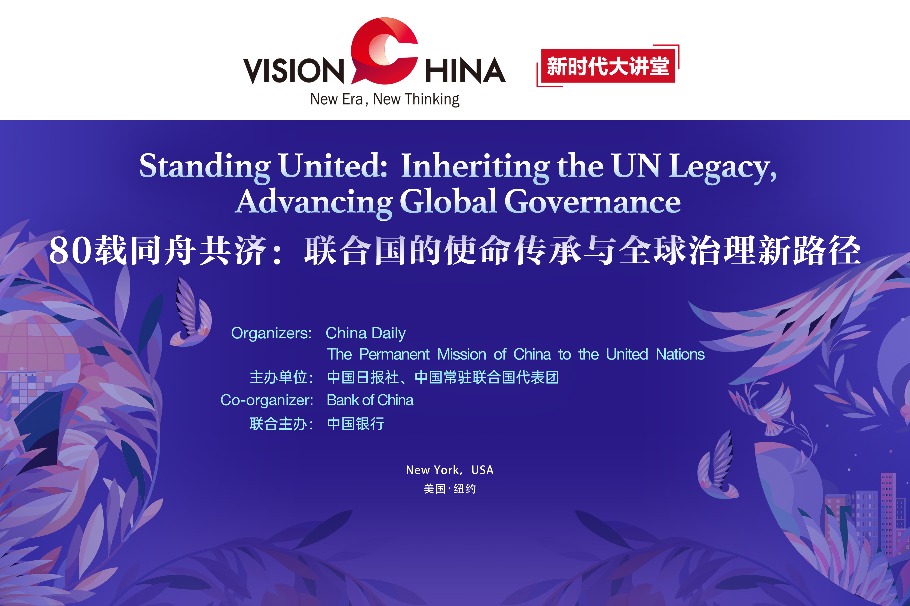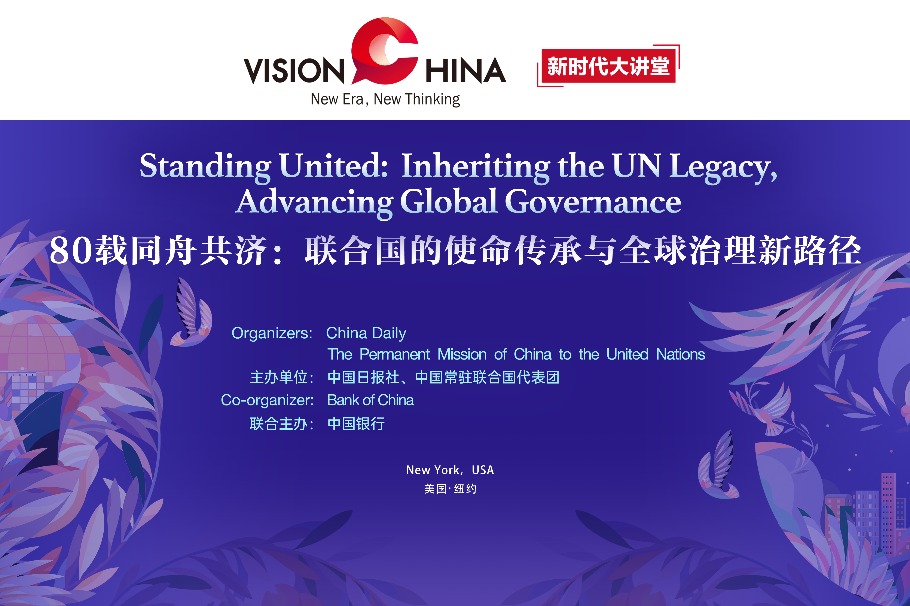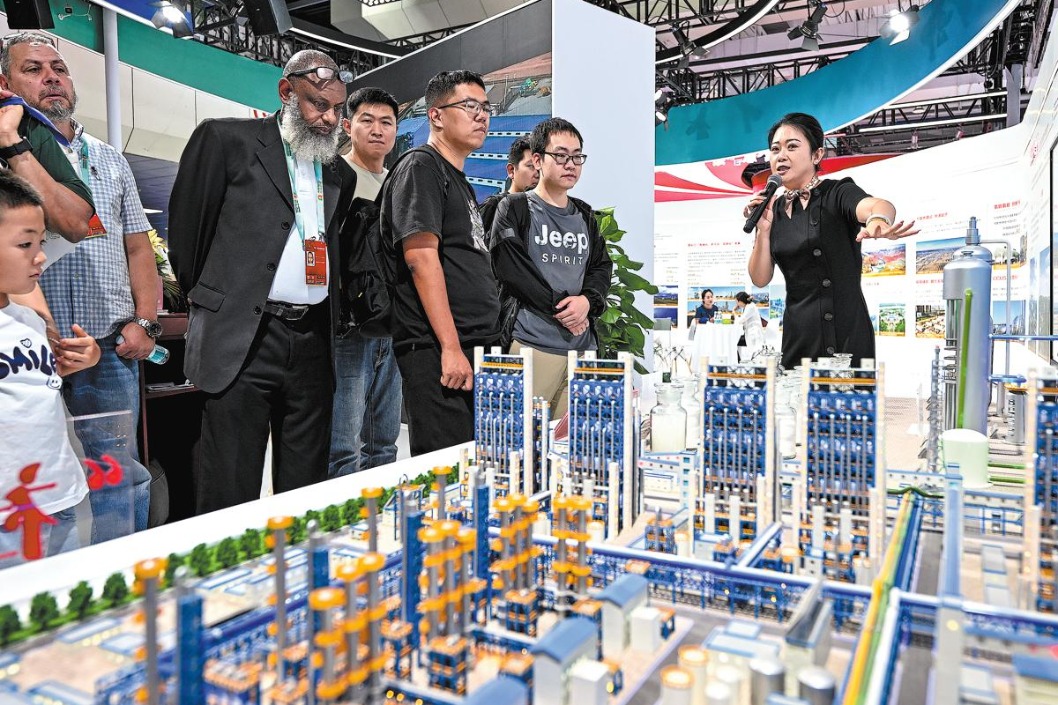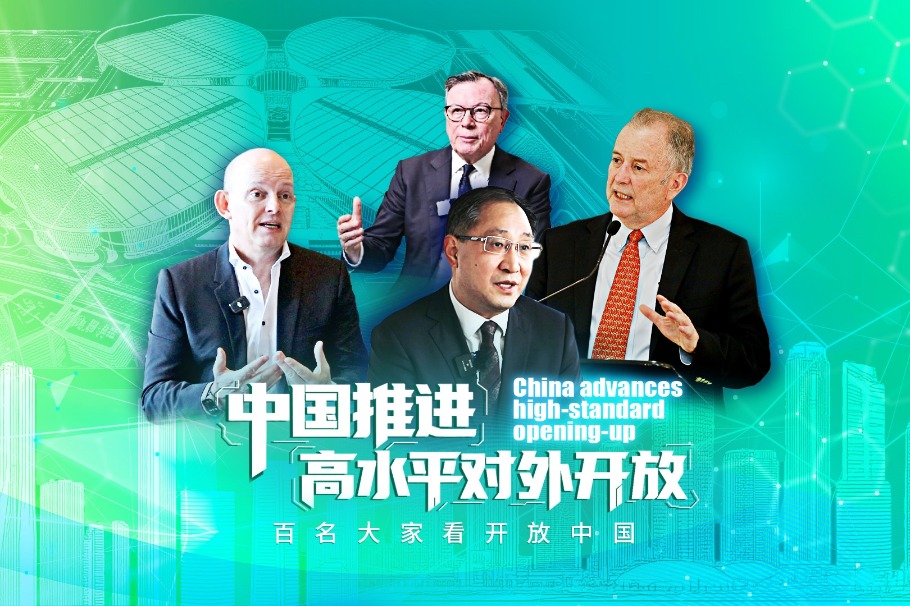Remodel to re-energize
Building capacity to transform the economy toward a more inclusive and sustainable paradigm is a key objective of China's 14th Five-Year Plan


During the 13th Five-Year Plan (2016-20), China achieved exceptional growth and made significant social development progress. The country's decisive response to the novel coronavirus outbreak and its subsequent economic recovery have been impressive. The remarkable achievement of ending extreme poverty in the country last year was also a momentous achievement that attracted international attention, and the country's ability to continue to ensure pollution prevention and to support efficient resources and energy usage have been particularly encouraging.
China started implementing the 14th Five-Year Plan (2021-25) this year, which sets out the country's new development tasks. The construction of a new development paradigm with domestic circulation as the mainstay and domestic and international circulation reinforcing each other aims to further propel the country forward in the coming years. The focus is on achieving high-quality economic development, the coordination of security and development, protecting the ecological environment and improving people's well-being, as well as narrowing the internal development gaps, which will all help to drive growth.
As President Xi Jinping pointed out at the Asia-Pacific Economic Cooperation CEO Dialogue in November 2020, to foster the new development paradigm, China will need to expand domestic demand as a strategic priority and ensure smooth flow of domestic circulation. Vigorously supporting scientific and technological innovations to foster new growth drivers is vital. And it will also need to continue deepening reforms and to energize the market. While meeting China's development demands, the new development paradigm will also be an effective means to fulfill China's commitments to the 2030 Agenda for Sustainable Development, which is aligned with the United Nations Industrial Development Organization's four strategic priorities: creating shared prosperity, advancing economic competitiveness, safeguarding the environment, and strengthening knowledge and institutions.
As the specialized agency of the United Nations mandated to promote and accelerate inclusive and sustainable industrial development, UNIDO has a long history of cooperation with China. We are supporting member states, including China, to address the constraints and challenges in the process of industrialization, including through building capacity to transform their economy toward a more inclusive and sustainable paradigm. Since 1990, UNIDO has implemented projects of over $470 million in China in a number of key areas including in investment promotion and technology transfer to environment and energy projects under multilateral environmental agreements. UNIDO's support activities in China are steered and guided by co-formulated five-year Country Programmes for inclusive and sustainable industrial development that are aligned and synergized with China's five-year plans.
UNIDO is about to launch its new Country Programme in 2021 to 2025, which aligns UNIDO's support and priorities for China in the 14th Five-Year Plan period. Under this new Country Programme, UNIDO will further assist China in four thematic areas, namely, innovation-driven industrial growth, developing green industry and fostering a green transformation of industry, rural revitalization and smart agro-food systems, and last but not least supporting China's international cooperation on inclusive and sustainable industrial development.
All the four thematic components will be advanced through UNIDO's core functions of technical cooperation; research and policy advice; standards and quality-related activities; and partnerships for knowledge transfer, networking and industrial cooperation.
UNIDO stands ready to support China in the implementation of its 14th Five-Year Plan, building on new strategic approaches to research and technical cooperation and in the adoption of advanced digital technologies in manufacturing, or the promotion of smart and sustainable cities to support the regional development efforts of the Chinese authority. Pushing forward the establishment of strategic partnerships with domestic and foreign partners will help address a dual challenge for the country: On the one hand, the need for China to continue to create the technological capacities to sustain its emerging global leadership in advanced manufacturing and other applications of advanced digital technologies. On the other hand, identify suitable mechanisms to close capability gaps and secure the participation of a broad base of Chinese companies and workers in the new development opportunities resulting from innovation and the promotion of a greener economy.
This is a special time in the history of humanity. The COVID-19 pandemic and severe catastrophes caused by climate change have accelerated change across the world. The global economy currently finds itself in a deep recession partially caused by the disruption to the industry chains and supply chains. Mounting unilateralism and protectionism, as well as a backlash against economic globalization, have added to the risks and uncertainties facing the world economy. The need to change the prevailing pattern of economic growth toward a more inclusive and sustainable one has become more urgent than ever. The new development paradigm adopted in the 14th Five-Year Plan is a positive step in this direction. It also has the potential to provide a model for other countries to follow.
In the coming five years, UNIDO looks forward to strengthening its collaboration with China to support the objectives of the 14th Five-Year Plan of China. I encourage all public and private stakeholders in China to embrace the new development paradigm, as well as to join our efforts and actions to realize it.
The author is managing director of the United Nations Industrial Development Organization. The author contributed this article to China Watch, a think tank powered by China Daily. The views do not necessarily reflect those of China Daily.
Contact the editor at editor@chinawatch.cn































